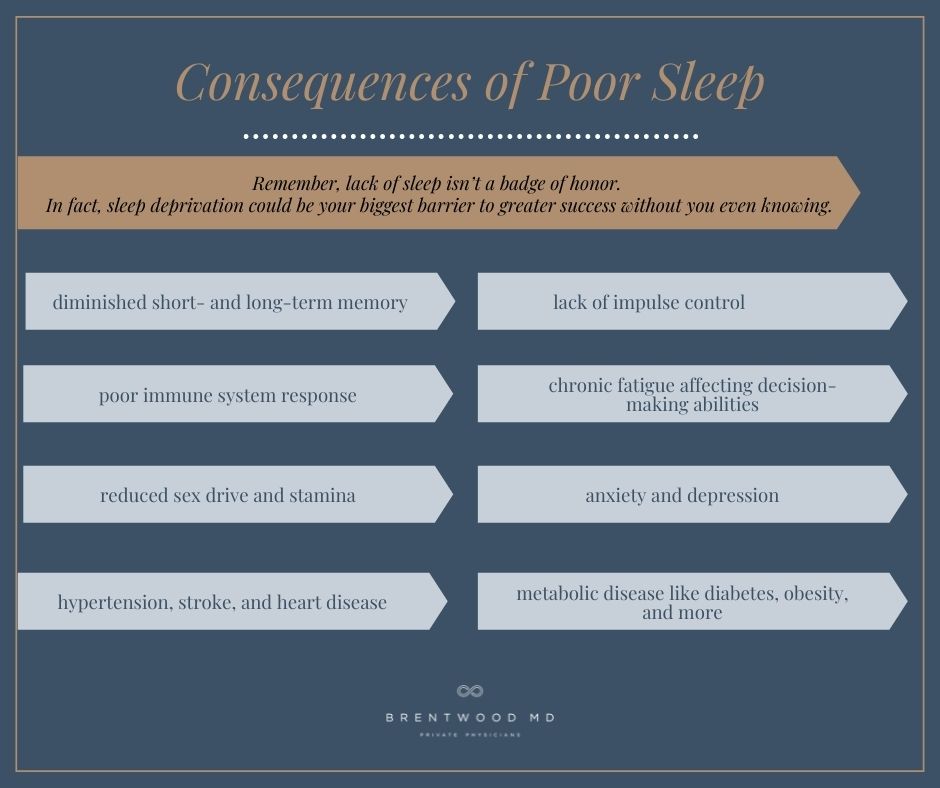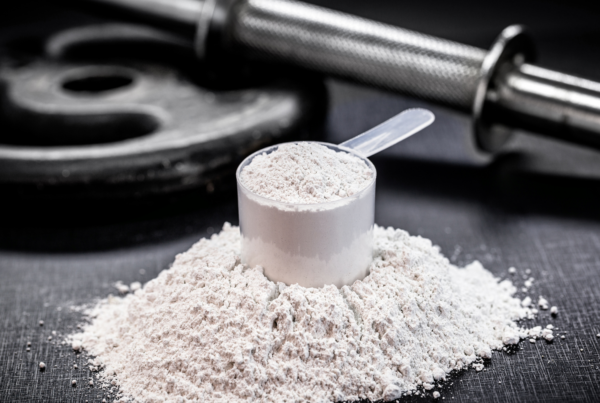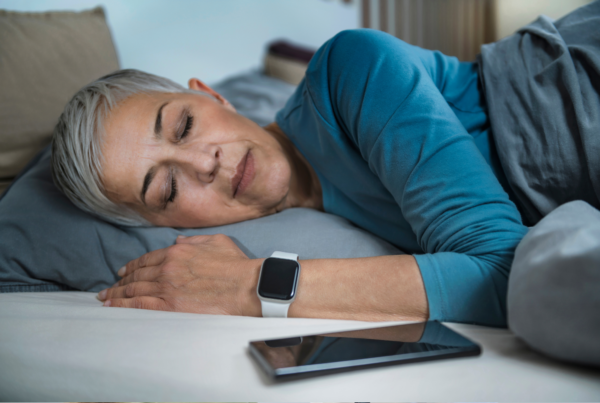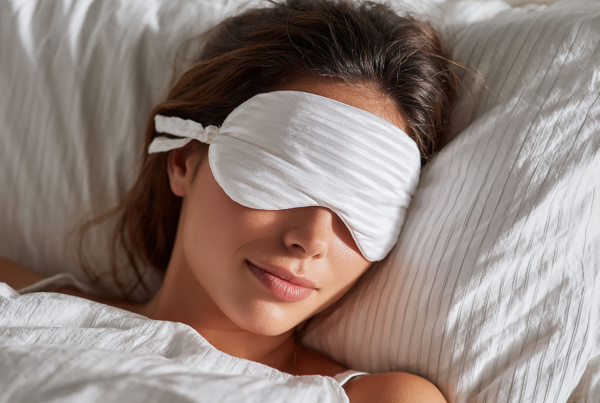Download file | Play in new window | Duration: 00:32:00 | Recorded on April 21st, 2022
The human brain is a fascinating and enigmatic organ. And sleep is one of its best-kept secrets.
We understand sleep much better than previously, but it remains a profound mystery.
We simply don’t know why we require roughly eight hours each day of unconsciousness and being cut off from the external world. Scientists have suggested it may have to do with memory filtering or cleansing the brain of toxins, but they’re not even close to understanding the mechanics of this neural housekeeping.
What we do know is that we must sleep. Without it, we die. It’s just as essential as water, food, and oxygen.
So why is it so easy for modern humans to neglect this critical part of our health? Why is it so undervalued and taken for granted?
As healthcare practitioners, Jen Justus and I have seen firsthand how devastating the effects of sleep deprivation can be. While we love to talk about positive momentum multipliers like strength training, we also need to discuss how poor quality sleep perpetuates profoundly negative momentum in people’s lives.
So buckle up, because this post will illuminate once and for all why you can no longer afford to sleep on sleep.
Why High-Quality Sleep Is Critical
Humans — often, highly successful and capable humans in particular — have a strange relationship with sleep. We’ve taken something that is 100% critical to optimal function and well-being and made it a conditional luxury.
Sleep is easily one of the most overlooked elements of health, and yet it’s probably more crucial than both exercise and dieting, which receive copious attention.
In other critical areas of our life, health, relationships, or finances, we’re always tinkering and trying to improve. But not sleep.
Perhaps we’re more inclined to better our waking selves because it feels more productive. Whatever the reason, sleep often gets sacrificed on the altar of productivity.
The result is people living in a constant cycle of sleep deprivation.
Some compensate for it with caffeine or stimulants, but these only exacerbate the cycle. Others find a way to adapt to chronic fatigue and brain fog, sometimes to the point that they forget there’s any other way to operate.
But eventually, physiological needs catch up and health begins to suffer. The only true solution is to get deep restorative sleep on a consistent basis.
Consider that roughly one-third of your life is spent sleeping (or trying to). Anything that counts for such a sizable chunk of your existence should be optimized, don’t you think?
Jen and I both work with high-performing individuals — executives, small business owners, entrepreneurs — who often force themselves to function in a near-perpetual state of sleep deprivation.
I don’t know how they do it. Humans have an incredible capacity to compensate.
But this gets harder as we age. When we’re younger, our brains are more elastic, resilient, and hormonally robust. It’s easier to catch up and function after a few nights of bad sleep.
This no longer holds when we get to 35, 55, or 65. At these ages, your body can’t recover as quickly.
As we’ll see, the negative consequences associated with long-term sleep deprivation are worth taking seriously.
Consequences of Poor Sleep
We’ve focused recently on positive multipliers. A positive multiplier is any health improvement tactic or tool that creates significant positive momentum in other areas of your life.
We haven’t talked much about negative multipliers, partly because I find it’s more impactful to take an optimistic approach.
However, poor quality sleep is one of those thumbtacks on the floor that I’d be remiss not to point out. With chronic sleep deprivation, we see what happens when a health multiplier works against us — and it’s not pretty.
I wrote in a previous post about the dangers of poor sleep, which include lack of impulse control, diminished short- and long-term memory, poor immune system response, reduced sex drive and stamina, anxiety, and depression.
Additionally, there is a strong link between chronic sleep deprivation and cardiovascular problems, including hypertension, stroke, and heart disease. This is especially true when sleep apnea is the sleep disruptor.
Studies have also shown a connection between a lack of deep restorative sleep and insulin resistance, which is the root behind most metabolic diseases, like diabetes, obesity, and more.
One of the most viscerally noticeable effects of poor sleep is chronic fatigue, which affects decision-making abilities. The CDC notes studies showing that just one night of not sleeping is equal to being legally drunk. It states:
- “Being awake for at least 18 hours is the same as someone having a blood content (BAC) of 0.05%.
- Being awake for at least 24 hours is equal to having a blood alcohol content of 0.10%. This is higher than the legal limit (0.08% BAC) in all states.”
If you’re not safe to drive after a night of bad or no sleep, think about how it affects other areas of your behavior. How might your decision-making, mood, interpersonal relationships, and overall performance improve if you committed yourself to getting better sleep?
Remember, lack of sleep isn’t a badge of honor. In fact, sleep deprivation could be your biggest barrier to greater success without you even knowing.
Moreover, if you’re routinely getting poor-quality sleep, it could be negating all the other health measures you’re taking.
Conversely, the positive effects of rejuvenating sleep are innumerable. By working at and improving this one thing, you could unlock the holy grail of health multipliers.
 Best Practices for Getting Quality Sleep
Best Practices for Getting Quality Sleep
If you have sleep troubles, you’re not alone.
I can find good quality sleep elusive myself. Sometimes it’s the result of eating or drinking too late. Other times, my brain just won’t let go of daytime concerns.
I’d love to give a six-point formula to guarantee perfect sleep, but I can’t. Sleep is too individual, and every individual is different.
However, we can look at some proven and effective principles for sleep improvement.
The first step is simple: commit to making good quality sleep a priority. As with almost all personal improvement, you first have to sell yourself on the idea so you can really invest.
Next, begin to optimize your sleep hygiene. Take inventory of your lifestyle and environment and ask yourself what changes you can make at home to help you sleep better at night.
Some sleep hygiene factors are fairly universal, and some are exceptionally personal. If you start by optimizing some of the common factors, you can experiment to find what further changes really make a difference.
Start with these tips:
- Make sure your bedroom is pitch black and quiet.
- No screen time at least 30 minutes before bed (sorry, this includes email, social media, and Netflix, too).
- Don’t eat or exercise close to bedtime.
- Try going to bed at the same time every night.
Then experiment with other, more personal factors that might affect your sleep. Does your bedroom temperature facilitate sleep? Do you need to skip a bedtime glass of water to stave off midnight bathroom breaks?
Identify any factors that might help that are within your control and start making some changes.
Lastly, you can’t manage what you don’t measure. If you’re really serious about auditing your body’s specific factors, you can keep score of your sleep.
Wearable technology like the Oura ring allows you to study your own sleep cycles and analyze specific biomarkers like REM sleep, heart rate, and bedtime schedule. The ring tracks your overall activity during the day, including your body’s stress signals, and compares it to your inactive periods and rest time.
The Oura ring aggregates all your data and then calculates a sleep health score that you can keep track of. It’s a useful and neat way to monitor your sleep wellness.
Once you tune into what your body’s telling you — the actual raw, real-time data — you can begin to assess and manage your modifiable risks. Is your heart rate high from too much caffeine during the day? Are social functions causing you to stay up too late? Is late-night alcohol overworking your adrenal glands?
There’s no universal template to sleep, so past a certain point, this is about individual optimization. Our minds and bodies function at the behest of incomprehensibly complex, interconnected systems of neurotransmitters, hormones, and unique anatomical components. One person’s modifiable risks won’t be the same as another’s.
Jen, for example, found that her sleep benefited greatly from progesterone supplementation, which can help perimenopausal women optimize their hormones. On the other hand, I’m considering consulting an ENT doctor to see if my sinuses could be affecting my sleep.
Some people benefit from taking melatonin before bed. Some don’t. But as with any medication or treatment, consult your doctor first.
Again, there’s no universal silver bullet that will guarantee a perfect night’s rest. The key is for you to commit to prioritizing and optimizing your sleep. Sell yourself on this as an idea worth pursuing, and then jump into it with the same care you take to improve other aspects of your life.
Audit your patterns and adjust the behaviors that are disruptive. Modify the things that are modifiable, and manage the things that are non-modifiable.

Dr. Aaron Wenzel is a concierge physician specializing in the care of fast-moving entrepreneurs, executives, and public figures in the Nashville, TN area. Dr. Wenzel’s diverse life experience and extensive training in family medicine, emergency care, nutrition, and hormone replacement therapies give him the unique platform to provide unmatched care for his patients.







